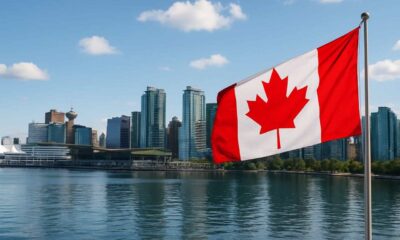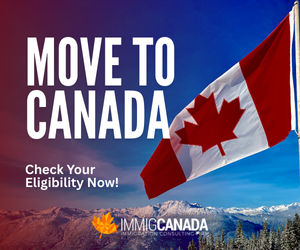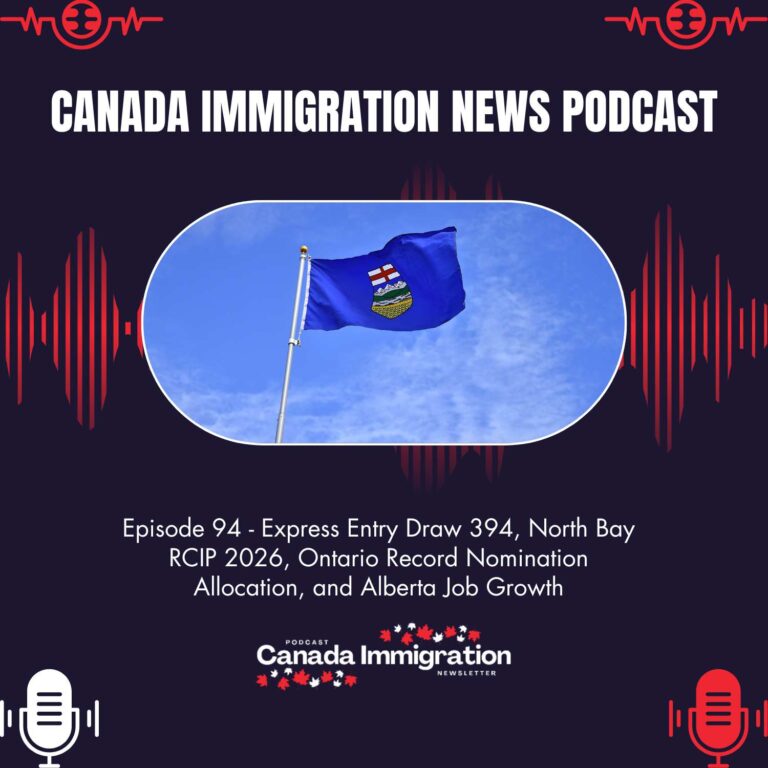Immigration Announcement
September 2025 Abacus Poll – What Canadians Really Think About Immigration, Safety, and the Economy

As Canada heads into the final quarter of 2025, the political scene remains a dynamic and unpredictable space. A recent Abacus Data survey, conducted from September 12 to 17, offers crucial insights into the public sentiment surrounding federal politics. With the return of Parliament on the horizon, Canadians are keeping a close eye on the economy, public safety, and the pressing issue of immigration. The country’s trajectory appears at a crossroads, with key issues like the cost of living and crime increasingly taking center stage. But what does all this mean for the future of immigration policy?
In this blog, we’ll dive into the key findings of this survey, focusing on the rise of public concerns around safety and immigration, and what these shifts could mean for Canada’s political future. From the impact on government approval to shifting partisan support, this post will break down the complexities of Canada’s political environment in 2025.
The State of Canada’s Direction: A Divided Sentiment
The overall sentiment of Canadians about the country’s direction remains persistently mixed. According to the survey, only 35% of Canadians believe the country is moving in the right direction, while 49% think things are heading in the wrong direction. These numbers have hardly shifted, highlighting a deep sense of uncertainty within the public. While many Canadians acknowledge the government’s efforts to address key issues, frustration is brewing over the economy, the rising cost of living, and concerns around crime and public safety.
For the immigration community, these mixed sentiments may suggest a turning tide. As affordability remains a dominant issue, immigration concerns continue to grow, with 28% of Canadians ranking it as a top issue. This suggests that both public perception and government action will need to be finely balanced to address the mounting concerns of Canadians across the country.
Key Issues Shaping the Political Landscape
Affordability Remains at the Forefront – Undoubtedly, the cost of living is still the primary concern for Canadians. The survey revealed that 57% of Canadians consider affordability as one of their top three issues. With inflation impacting everything from groceries to housing prices, this concern remains entrenched. While the government’s approval rating holds steady at 50%, the growing economic pressures are proving to be a significant point of contention.
Crime and Safety – In a surprising turn, public safety has now emerged as a critical issue. 20% of Canadians cite concerns about crime and safety, a sharp rise from 16% just weeks ago. This surge is particularly notable among older Canadians and Conservative voters. The debate over how to handle public safety could spill over into immigration policy, especially when discussing border security and refugee screening.
Immigration – Immigration remains one of the top-five concerns for Canadians, with 28% of people identifying it as a key issue. However, public opinion on immigration is deeply divided along partisan lines. The Conservative Party holds a commanding 43% advantage over the Liberals on this issue, underscoring the importance of addressing immigration in a balanced and thoughtful manner. As immigration continues to fuel partisan debates, understanding how to align immigration policy with the country’s broader political landscape will be crucial for any government looking to stay in power.
Government Approval – The federal government, led by Prime Minister Mark Carney, has managed to maintain a 50% approval rating despite the growing challenges on the horizon. This level of stability suggests that while Canadians are concerned about economic issues, many still view Carney and his team as competent. However, with rising concerns over affordability, immigration, and public safety, this approval rating could be tested in the coming months.
What stands out is the shift in older Canadians’ political allegiance. Support for the Liberals among those aged 60+ has dropped, with more seniors now backing the Conservatives. If this trend continues, it could have significant implications for the upcoming elections, particularly when we consider the increasing importance of immigration as a political issue.
What’s Next for Canada’s Immigration Policy?
Canada’s political environment in 2025 is one of tension and uncertainty. As economic issues, public safety, and immigration remain at the forefront of national discourse, political parties will need to carefully craft policies that resonate with the electorate. For those in the immigration sector, it’s clear that the conversation around immigration is evolving rapidly, with the Conservative Party holding a significant edge on the issue. The government will need to address concerns over immigration policy with care, balancing security and compassion while keeping an eye on public sentiment.
As Canadians continue to grapple with rising costs and shifting safety concerns, the political parties will have their work cut out for them. The next few months could prove pivotal in shaping the future of immigration policy and the broader political landscape in Canada.























